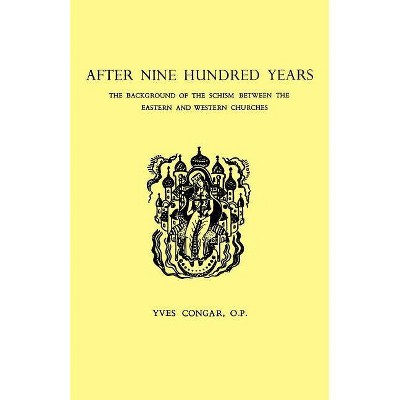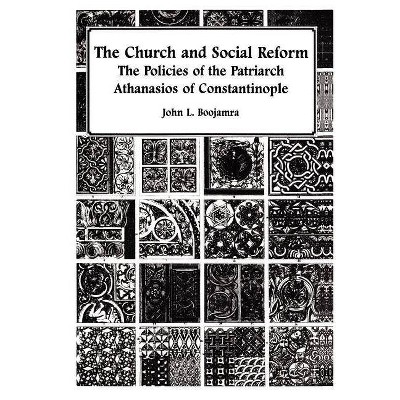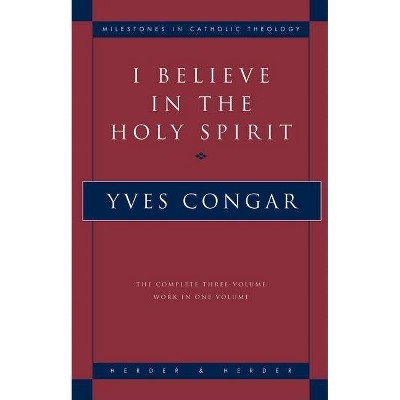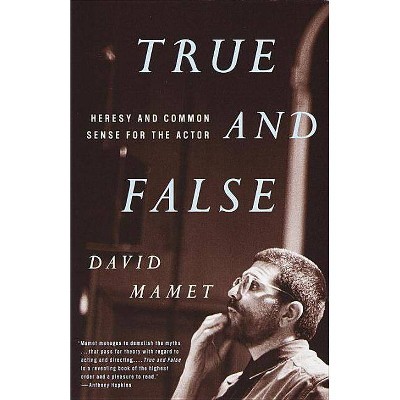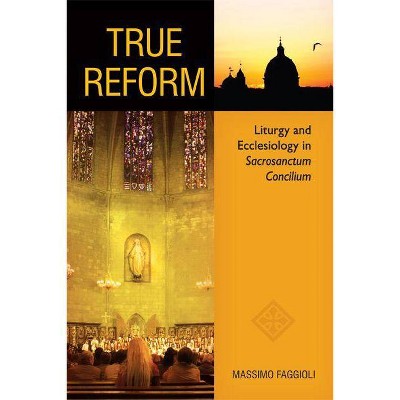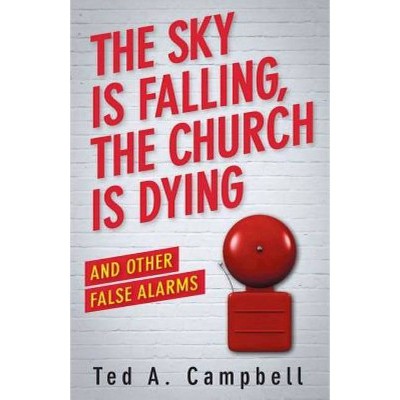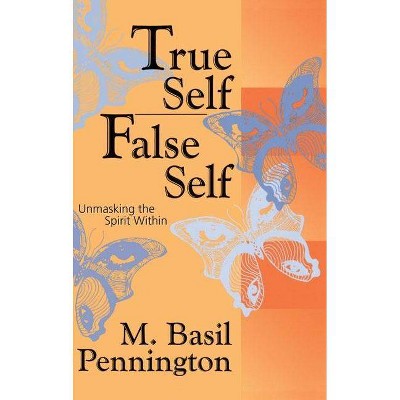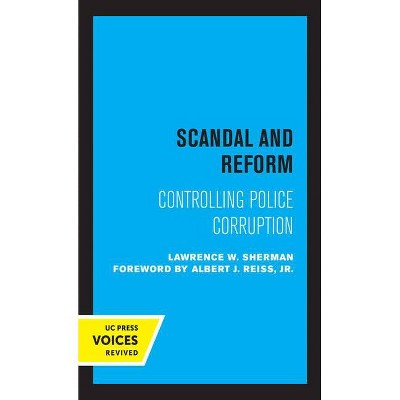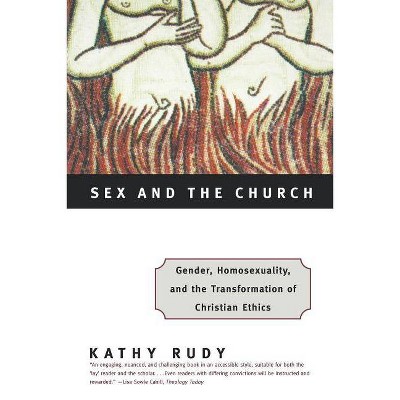True and False Reform in the Church - by Yves Congar (Paperback)
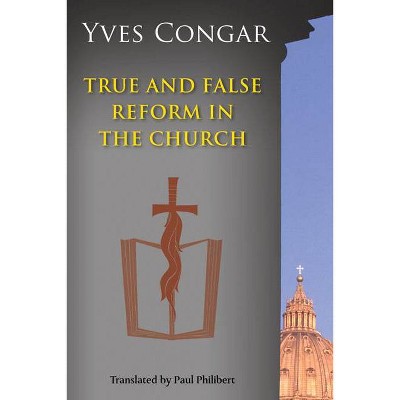
Similar Products
Products of same category from the store
AllProduct info
<p/><br></br><p><b> About the Book </b></p></br></br>Pope John XXIII, who read True and False Reform during his years as papal nuncio in France (then Archbishop Angelo Roncalli ), opened the Second Vatican Council by describing its goals in terms that reflected Congars description of authentic reform: reform that penetrates totheheart of doctrine as a message of salvation for the whole of humanity, that retrieves the meaning of prophecy in a living church, and that is deeply rooted in history rather than superficially related to the apostolic tradition.The council was called to update the churchs capacity to explain itself to the world and to revitalize ecclesial life in all its unique local manifestations.Congars masterpiece fills in the blanks of what we have been missing in our reception of the council and its call to true reform.<p/><br></br><p><b> Book Synopsis </b></p></br></br><p>Archbishop Angelo Roncali (later Pope John XXIII) read <em>True and False Reform</em> during his years as papal nuncio in France and asked, A reform of the church 'is such a thing really possible?" A decade later as pope, he opened the Second Vatican Council by describing its goals in terms that reflected Congar's description of authentic reform: reform that penetrates to the heart of doctrine as a message of salvation for the whole of humanity, that retrieves the meaning of prophecy in a living church, and that is deeply rooted in history rather than superficially related to the apostolic tradition. Pope John called the council not to reform heresy or to denounce errors but to update the church's capacity to explain itself to the world and to revitalize ecclesial life in all its unique local manifestations. Congar's masterpiece fills in the blanks of what we have been missing in our reception of the council and its call to "true reform."</p><p><em>Yves Congar, OP, a French Dominican who died in 1995, was the most important ecclesiologist in modern times. His writings and his active participation in Vatican II had an immense influence upon the council documents. With a few other contemporaries, Congar pioneered a new style of theological research and writing that linked the great tradition of Scripture and the Fathers to contemporary pastoral questions with lucidity and passion. His key concerns were the unity of the church, lay apostolic life, and a revival of the church's theology of the Holy Spirit. He was named a cardinal by Pope John Paul II in recognition of his profound contributions to the Second Vatican Council.</em></p><p><em>Paul Philibert, OP, has taught pastoral theology in the United States and abroad. He is a Dominican friar of the Southern Province. His translation of a collection of Congar's essays on the liturgy has recently been published by Liturgical Press under the title </em>At the Heart of Christian Worship.<em> His book </em>The Priesthood of the Faithful: Key to a living Church<em> (Liturgical Press, 2005) reflects the ecclesiology of Yves Congar and his Vision of the apostolic life of the faithful.</em>"</p><p/><br></br><p><b> Review Quotes </b></p></br></br><br>A pioneering masterpiece which set the stage for reform in the Catholic church.SirReadaLot.org<br><br>Congar's True and False Reform in the Church, although now six decades old, is perhaps even more relevant for the life of the church today than it was when he first penned it. This volume reflects the singular virtues of Congar, his fidelity to the Great Tradition, his generous ecumenical spirit, and his commitment to authentic ecclesial reform as a manifestation of the work of the Holy Spirit. This elegant yet precise translation by Paul Philibert makes widely accessible what is, perhaps, Congar's most important work.Richard R. Gaillardetz, PhD <br>Murray/Bacik Professor of Catholic Studies <br>The University of Toledo<br><br>The book is an object lesson of how the theology of reform ought to be done, rather than a set of ready-made theological answers. And because it is on a subject that needs very much to be theologized about today - and on which there are few if any comparable classics - it needs to be read.... If we could get contemporary theologians who have gone cool on Vatican II - or at least have begun to be choosy about what they learn from it - to read Congar on reform in the Church we might be able to have a more productive dialogue with them, and a dialogue that would give Vatican II its due weight. Both of us would have to be prepared to situate the Council within the fullness of the apostolic tradition and to let that understanding dictate how the reforms begun at the council need to be continued in the world of today.Liam G. Walsh, OP, Doctrine and Life<br><br>The large themes that Congar took up decades ago remain relevant. Theologians, clergy and parish study groups will benefit from a careful reading of True and False Reform.... If it revitalises among anglophone Catholics a prophetic stewardship of the Church's tradition and development, the Englishing of Congar's thought will make an important contribution to the life of the Church.The Tablet<br><br>What a delight to have this readable translation of Congar's classic work on reform of the Church's life, worship, and mission! Originally published in 1950, the book must today be given an important role in any satisfactory account of the movements that prepared and then affected the Second Vatican Council.Jared Wicks, SJ, The Living Church<br><br>Next to its value for actual pastoral theology and practice, this translation is noteworthy for making available to an English-speaking audience a work of Congar that is crucial in understanding not only his ecclesiology, but also his perspective on ecumenism and Tradition.Ephemerides Theologicae Lovanienses<br><br>True and False Reform in the Church is one of the most important books in the history of theology in the twentieth century. Fifty years after the opening of Vatican II, the publication of this translation is not just an act of remembrance, but of hope.Massimo Faggioli, University of Saint Thomas, Author of True Reform<br><br>True and False Reform in the Church should be read by all pastors and thinking Christians. It is rightly ranked among the most important theological works of the twentieth century whose renewing power is now happily re-issued for a contemporary readership.Patrick Hayes, PhD, Redemptorist Archives of the Baltimore Province, CatholicBooksReview.org<br>
Price History
Price Archive shows prices from various stores, lets you see history and find the cheapest. There is no actual sale on the website. For all support, inquiry and suggestion messagescommunication@pricearchive.us
